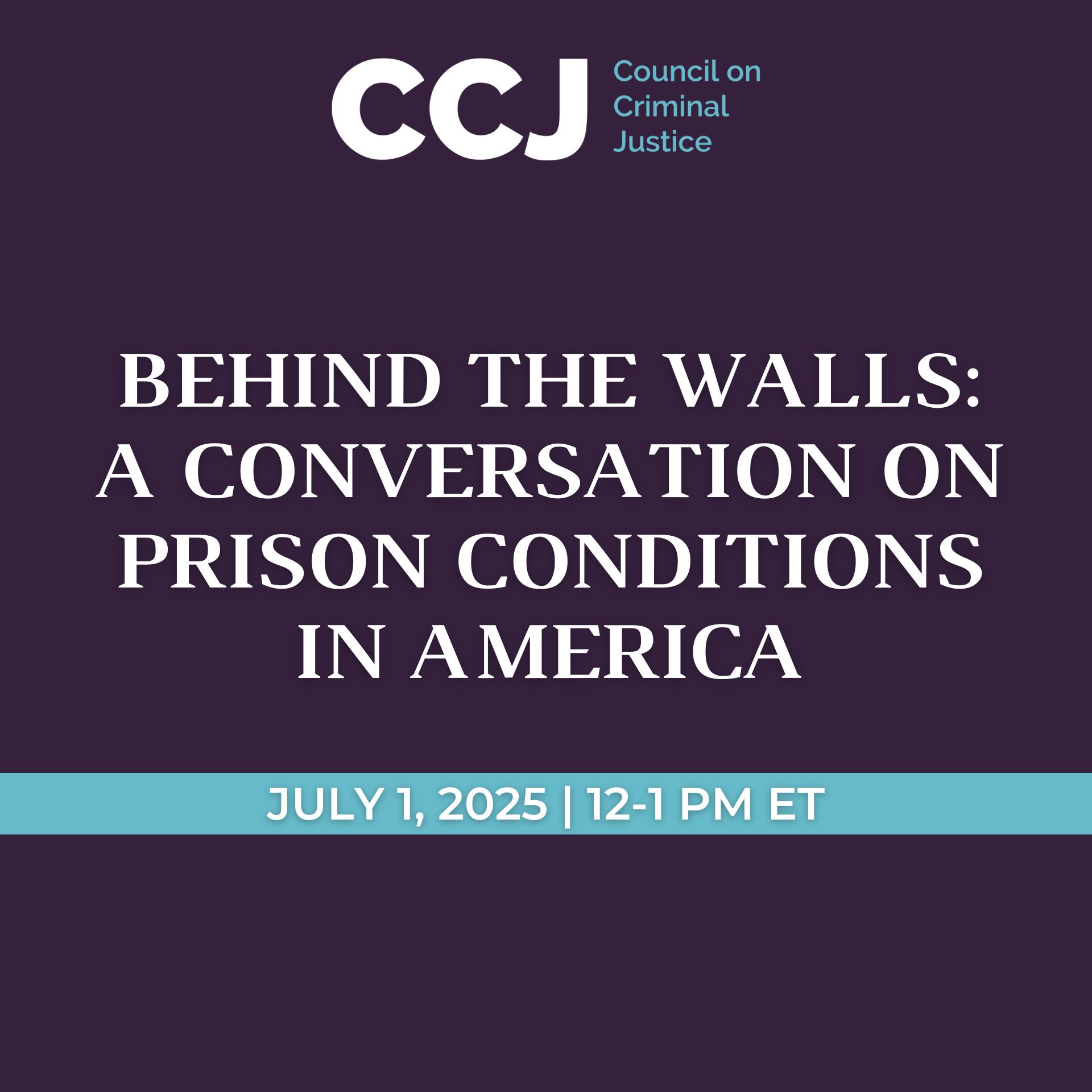Diverse panel of civil rights and law enforcement leaders with funding from leading philanthropists will identify evidence-based strategies to reduce police use of force, improve accountability
5:00 a.m. ET, November 22, 2020
Contact: Jenifer Warren
jwarren@counciloncj.org
916-217-0780
WASHINGTON, D.C. – The Council on Criminal Justice (CCJ) today launched an independent Task Force on Policing to identify the policies and practices most likely to reduce violent encounters between officers and the public and improve the fairness and effectiveness of American law enforcement.
Representing a diverse range of perspectives, the Task Force will employ an evidence-based approach to evaluate more than two dozen of the most commonly proposed reforms focused on preventing police use of excessive force, reducing racial biases, increasing police accountability, and improving the relationship between law enforcement agencies and the communities they serve. The Task Force will publish an assessment of each proposal, weighing the advantages, disadvantages and efficacy.
Lead funding for the Task Force was provided by Ken Griffin, Founder and CEO of Citadel. Mr. Griffin’s substantial contribution builds on his ongoing support for criminal justice reform grounded in data and experience. “We have seen the power of data-driven solutions in improving the safety and well-being of our communities,” said Mr. Griffin. “I am proud to support the Task Force in partnering with police and community leaders to enhance the quality of life for all Americans.”
“The need for new approaches to decades-long challenges was brought into sharp focus this year as protests sprung up across the country in response to police violence,” said Task Force Executive Director and former Urban Institute Vice President of Justice Policy Nancy La Vigne. “The Task Force will steer policymakers toward measures that are backed by research and most likely to fulfill the promise of reform.”
The Task Force will assess reforms that address hiring and training, use of force, technology, militarization, and officer and agency accountability. It also will evaluate measures that would shift some current law enforcement responsibilities to social service agencies or community-led safety initiatives.
The Task Force includes the following activists, law enforcement leaders, civil rights advocates, scientists, and local community and political leaders who bring a range of relevant experience to this critical work:
- Art Acevedo, Chief, Houston Police Department; President, Major Cities Chiefs Association
- Roy L. Austin, Jr., Partner, Harris, Wiltshire & Grannis, LLP; former White House domestic policy adviser
- Louis M. Dekmar, Chief, LaGrange (Ga.) Police Department; former President, International Association of Chiefs of Police
- Collette Flanagan, Founder, Mothers Against Police Brutality
- Walter Katz, Vice President of Criminal Justice, Arnold Ventures; former police oversight official, Los Angeles County and San Jose, Calif.
- Cynthia Lum, Professor, George Mason University, Department of Criminology, Law and Society; Director, Center for Evidence-Based Crime Policy
- Tashante McCoy, Regional Manager and Founder, Crime Survivors for Safety & Justice/The OWL Movement
- DeRay Mckesson, Educator, Author and Co-Founder, Campaign Zero
- Michael Nutter, Former Mayor, City of Philadelphia; former President, U.S. Conference of Mayors
- Sean Smoot, Director and Chief Counsel, Police Benevolent and Protective Association of Illinois
- Rosie Rivera, Sheriff, Salt Lake County, Utah
Additional support for the initiative comes from the Joyce Foundation and Draper Richards Kaplan Foundation, as well as CCJ’s general operating contributors.
The Crime Lab at the University of Chicago’s Harris School of Public Policy is serving as research partner for the Task Force, evaluating the empirical evidence that will guide the panel’s recommendations. “Everyone here at the University of Chicago Crime Lab is committed to meaningful police reform and more equitable public safety,” said Crime Lab founder and University of Chicago professor Jens Ludwig, “so we’re thrilled to be part of this important initiative.”
As one of the nation’s premier criminal justice research organizations, the Crime Lab partners with the public sector and communities to use data and research to design, test and scale programs and policies to enhance public safety and advance justice reform.
Statements from Task Force Members
“Our communities are hurting, and it’s essential that we not only demonstrate that we’re listening, but also that we commit ourselves to changes that will strengthen trust between police agencies and the people we serve. I believe this Task Force can help us move forward productively by highlighting which proposals are backed by evidence and most likely to help us succeed.”
Art Acevedo, Chief, Houston Police Department; President, Major Cities Chiefs Association
“After Ferguson, we were promised change, but the change we need has not come to be. Can we come together now and acknowledge that true public safety requires us to shrink the role and power of police? We must.”
DeRay Mckesson, Educator, Author and Co-Founder, Campaign Zero
“The death of George Floyd along with my cousin, Antwaune Burrise, and other incidents of violence at the hands of police have led us to an historic moment of reckoning over the very essence of American law enforcement. It is my hope and expectation that this Task Force will help our country sort through the multitude of good ideas and find those offering the greatest promise to produce true change.”
Tashante McCoy, Regional Manager and Founder, Crime Survivors for Safety & Justice/The OWL Movement
“There are many great ideas out there about how we should reimagine policing – and I applaud everyone dedicated to this critical mission. What sets this Task Force apart is its focus on channeling the impulse driving this movement in a direction most likely to produce the improvements we seek.”
Louis Dekmar, Chief, LaGrange (Ga.) Police Department; former President, International Association of Chiefs of Police
“The analyses produced by this Task Force will serve as essential resources for policymakers, advocates, and others striving to ensure police provide effective, equitable, and respectful services to those they are sworn to protect.”
Michael Nutter, Former Mayor, City of Philadelphia; former President, U.S. Conference of Mayors
“This Task Force will be a critical voice in the robust and long-overdue national conversation that helps policymakers, law enforcement professionals, and communities chart a path forward.”
Roy Austin, Partner, Harris, Wiltshire & Grannis, LLP; former White House domestic policy adviser
“We strive to police in a way that is both effective and constitutional. I’m convinced that we will find reforms that will reduce violence and make our police and communities stronger.”
Rosie Rivera, Sheriff, Salt Lake County, Utah
About the Council on Criminal Justice
The Council on Criminal Justice (CCJ) is a nonpartisan membership organization and think tank created to advance understanding of the criminal justice policy challenges facing the nation and build consensus for solutions based on facts, evidence, and fundamental principles of justice.
As part of its array of activities, the Council conducts research and convenes independent groups of members and experts that produce reports with findings and policy recommendations on matters of concern. The findings and recommendations of the Task Force are its own; neither the Council’s Board of Directors nor its Board of Trustees will approve or disapprove the Task Force’s work.
To learn more, visit counciloncj.org.



